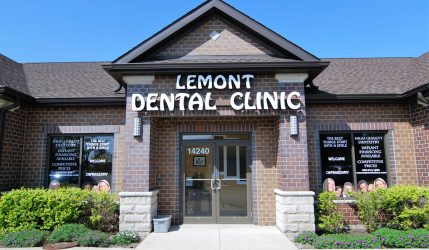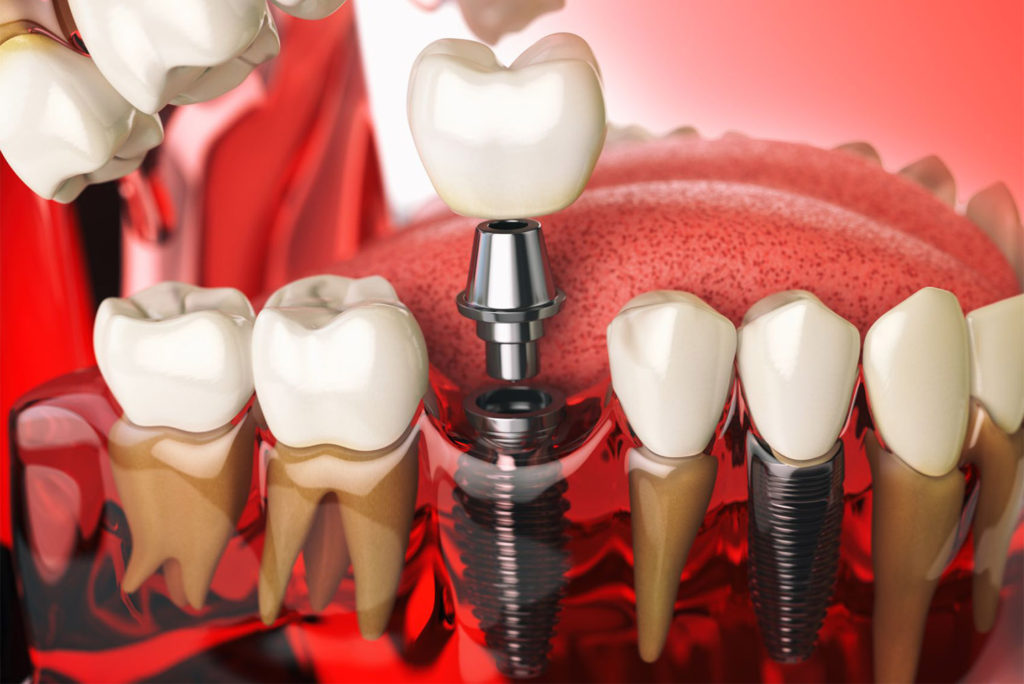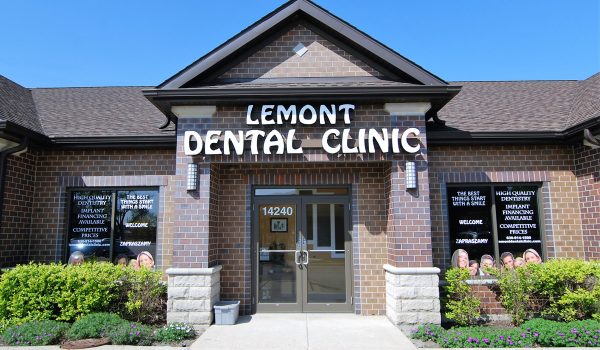If you need any additional information, please call us


| Monday – Friday: | 9am – 7pm |
| Saturday: | 9am – 1pm |
| Sunday: | Closed |
| Mon - Wed - Fri: | 9am – 3pm |
| Tues - Thur: | 12pm – 7pm |
| Every second Saturday: | 9am – 1pm |
| Sunday: | Closed |
Learn more about Dental Implants Near Me with Us:
An implant is an artificial root that is placed in the area of the missing tooth.
Thanks to implants, we can restore missing teeth regardless of whether there is one tooth or a group of teeth that need to be replaced.
Implants are made of titanium. Titanium is the only element that has the ability to osseointegrate—to permanently grow into the bone. This process is similar to the one that takes place when a broken bone heals.

The doctor prepares a general treatment plan based on the patient’s needs, clinical examination, additional tests, and bone measurements. After a thorough analysis of all the crucial data, the patient is informed about the treatment plan.
Treatment is usually conducted in two stages: prosthetic and surgical.
This procedure is usually performed under local anesthesia. The doctor prepares a lumen into which the implant will be screwed. Next, the implant is covered by gingiva in order to support better healing. Depending on the number of placed implants, the procedure takes up to two hours but may last only thirty minutes.
Bone healing and implant ingrowth take around six months. Once the implant is covered with gingiva, it grows into the bone painlessly and does not pose an inconvenience in everyday activities. For the duration of the healing process, the patient uses a temporary prosthetic.
After healing, the top of the implant is provided with a healing screw for several days, which puts the implant edge closer to the gingival margin. The following visit will get you closer to your dream smile. The doctor will take impressions of your mouth and the lab technician will make a crown, bridge, or overdenture that will be attached to the implants.
In certain clinical situations, the doctor will decide to place the implant right after extracting the tooth. This minimizes healing time and positively affects the tissues surrounding the implant, especially the gingiva. Regular check-ups during which the dentist will evaluate the healing process are a necessary element of treatment.
Further development of implant technology has opened up new possibilities for prosthodontics.
Prosthodontic treatment depends on the number of missing teeth and the type of restoration that is made:
In favorable conditions, you can set up a temporary crown immediately after implant placement. This is particularly important in the front of the mouth where we want high aesthetics. Each time, the decision to take such steps should be made by the doctor.
Implants can be implanted in generally healthy adults with the right amount and quality of bone at the site of the planned placement of the implant.
These problems can be solved with modern methods of surgical implantation.
Properly conducted implant treatment, with favorable general conditions and conditions in the patient’s mouth, usually does not carry any risk.
Usually right after the implantation, slight temporary pain and swelling of the soft tissues may appear. To prevent the occurrence of later complications, patients take antibiotics for a few days after surgery.
Implant placement is carried out under local anesthesia and is therefore painless. Because of the delicacy and precision of the surgical technique, its inconvenience for the patient is comparable to a surgical tooth extraction.
Oral hygiene plays a very important role in the success of implant treatment. If dental implants are to fulfill their role for a long time, the task of the patient is to maintain exemplary oral hygiene. This task requires self-discipline and cooperation with the doctor. It is important to avoid tobacco (at least within 48 hours after surgery) and reduce foods that increase the accumulation of plaque.
As contaminants accumulate around the implant, the accumulation of bacteria may lead to the development of infection and, in extreme cases, to implant rejection. In these cases, it is indicated to once again start gently brushing your teeth. Rinsing the mouth with disinfectant twice a day may also be helpful.
It is important that proper oral hygiene is maintained at all times during the use of implants. This is further facilitated by regular reporting for professional tooth cleaning, often combined with a thorough checkup.
Restorations based on implants provide a very good aesthetic effect and effective restoration of the masticatory function. It is worth remembering that the prostheses based on implants are by far the best solution, because only they provide the patient with a permanent outcome and comfort, and are able to completely replace natural dentition.
The implant itself is indestructible. However, since the implant is placed in the living body, the “foreign body reaction” depends on the overall state of the organism.
Systemic diseases or addictions may have a negative impact on the effect of the therapy. The prosthetic part, on the other hand, is backed by a warranty. As a material element, it may be subject to wear or require periodic replacement of certain parts; for example, the porcelain portion.
Smoking worsens the regenerative capacity of tissues and, therefore, substantially reduces the chance of a positive outlook for long term maintenance and acceptance of the implant.
Smoking quadruples the risk of implant rejection. It also contributes to easier deposition of difficult to remove deposits on the teeth and restorations.

Phone: (630) 914-1500
Fax: (630) 914-1501
Address: 14240 McCarthy Rd.,
Lemont, IL 60439
Mon – Wed – Fri: 9am – 3pm | Tues – Thur: 12pm – 7pm | Every second Saturday: 9am – 1pm | Sunday: Closed

Phone: (708) 233-8199
Fax: (708) 233-6208
Address: 10033 S. Roberts Rd.
Palos Hills, IL 60465
Monday – Friday: 9am – 1pm | Saturday: 9am – 1pm | Sunday: Closed